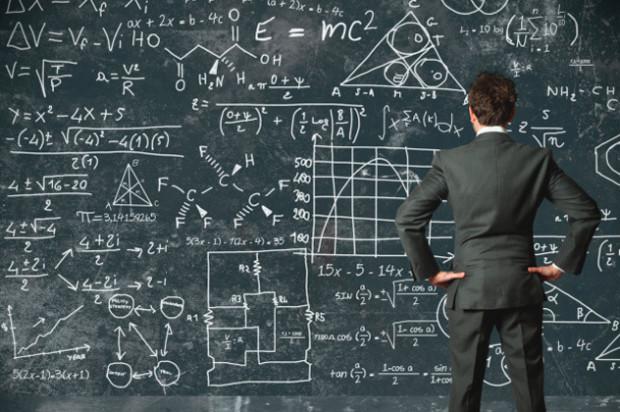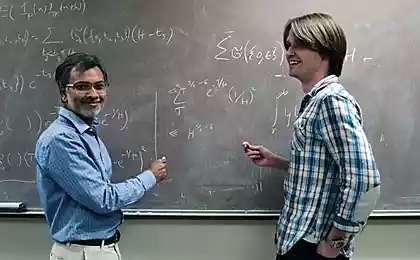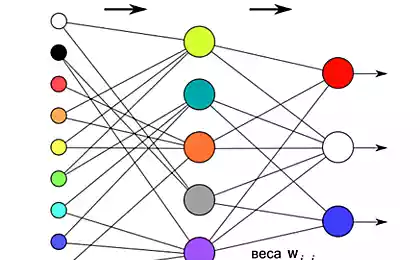9 simple things that are much more complicated than they seem

In the world there are many things that people do not understand. But we can take solace in the fact that some of the concepts and ideas are so simple that anyone can understand them. But when you look at some of these concepts more closely, you will realize that opened a huge can of worms.
1. Proof for "1 + 1 = 2" holds more than 300 stranits

Probably the first thing that we learn from mathematics - it is usually "1 + 1 = 2" because the addition and subtraction perhaps the most simple things in mathematics. If you have an apple and someone gives you one more, then you will have two apples. By the same logic, if you have two apples and one will select someone, then you will only have one apple.
It is an undeniable fact of life that goes beyond linguistic or racial barrier. But the evidence for such a simple thing as a "1 + 1 = 2" takes more than 300 pages, and it could not prove to the XX-th century.
At the beginning of XX-th century, Bertrand Russell decided to conclusively prove that the math works, so I started with a very simple concept. And he proved. The work took 372 pages of mathematical formulas and philosophy. The decision was published in the «Principia Mathematica» in three volumes. So if you have nothing planned for the next few weeks, you can read at your leisure.
2. The definition of "almost certainly" - a mathematical koshmar

If you say that an event is "almost certain" to happen, how would you explain your words a little child, who had previously not experienced with this? Maybe you would say that the event happens almost guaranteed, but then you would have at the same time to explain that in this context, does the word "almost." And then it would be entangled. This is a difficult question - such concepts as "almost certainly" or "almost certain" itself is vague.
Fortunately for mankind, statistical mathematics gives a full explanation. Unfortunately for mankind, it is frightening at first glance to the core. Let us give a quote from a mathematical textbook:
«The theory of probability say that the property is" almost certainly "works, if the conditions for the entire set of sample points, except perhaps some points forming a subset of cases, zero probability».
blockquote> Simply put, this means that even if the event has a 100% chance to happen, it does not necessarily happen. For example, if you flip a coin a million times, according to statistics eagle once, but will fall. However, there is an infinitesimal probability that a million times all rolled tails. Nowhere is there are no guarantees, even in mathematics.
3. There is no generally accepted theory about how to work velosipedy
Bicycles have been around for over 100 years. During this time, we developed land, sea and air space, achieved impressive progress in space exploration. We have aircraft that can fly around the globe in a few hours, so you certainly think too modest in a long time bike exactly clear. Oddly enough, this is not the case.
Scientists have long been talking about how to operate the bike. Specifically, it can remain upright. In fact, the conversations going since the invention of the bicycle. For a long time the basic theory was: a bicycle in an upright position keeps the wheel gyroscopic force.
But when the scientists have designed a special bike with attached devices intended to counteract any gyroscopic forces, he still remained in an upright position. No one knows how.
There is a theory that does not fall bike allows you to form - he aligns himself. But this is only a theory. So far there is no scientific field, as the dynamics of the bike, so it is unlikely in the near future, we will know the answer.
4. What is the length from the piece of rope? Check this nevozmozhno
If someone gives you a hand piece of rope, and ask what is its length, the answer is easy, right? Easy task, albeit strange. But what would you say if people asked for a response as a percentage? It also decided to find out the comedian Alan Davies. He asked this question to a group of scientists TV show.

The answer was ironic: "It depends on the conditions." The exact definition really depends on how you ask. Mathematics comedian said that theoretically could be a piece of rope of infinite length, and physicists said that due to the nature of subatomic physics and the fact that the atoms can technically be in two places at the same time, it is impossible to accurately measure the piece.
5. Zevanie
Yawning - a mysterious phenomenon. Even the fact that we talk about it, proves that people yawn (can you now yawn). It's even a bit nice.
But maybe you already know the old theory that yawning tells the body that it's time to take a big gulp of oxygen. This makes sense, because we often yawn when tired or bored-that is, in a situation where more energy is very handy to.
The trick is that the experiments over and over again convincingly refute this theory for many years. In fact, there is no universal theory of why and why we yawn. A common theory is that a yawn cools the brain, because the various experiments have shown that yawning during temperature changes of the brain. In fact, this is one of the few things that during yawning generally occur.
And that is why yawning is contagious, no one at all has no idea.
6. "Left" and "right" to confuse the minds of philosophers has been long gody
How would you explain what "left" and "right" to someone who is not the concept of this is? Can you explain it in terms of your position relative to the stationary famous landmark? Or maybe you would come up with an answer pooriginalnee - would remember about the rotation of the Earth or something more scale or relatively unchanged.
And if you are talking to an alien whose planet rotates as ours, or those who have no eyes as such? This question stirred up the minds of philosophers for many years, because without a coherent point of reference is incredibly difficult to determine where the "Left" and where "the right».

For example, consider the work of the German philosopher Immanuel Kant, who once said: "If the first creation was a human hand, it necessarily had to be either right or left».
However, with the same hand out a hitch. Think - the right and the left hand is clearly differ from each other, and what is absolutely clear. Now try to describe them - and the description will be the same, because the hands are also essentially the same. At the same time, in the words of Kant, on the right hand can not pull a glove for the left, because the difference between them is. But this intuitive us the difference is almost impossible to put into words, if there is nothing to compare.
Do you think we're making this harder? It's not us - we have a 400-page book on the philosophy of "the left" and "right" with the telling name "right and left».
7. We are enjoying something that is not just because of the pleasure
Enjoyment - a very strange thing, because it is very much subjective. For every person who likes some food, song or movie, there will another person who will hate them. You might think that we are enjoying something, because it makes us feel good, but it is only half the battle.
For example, a person can be misleading - make him think that he likes the food or wine, just because you tell him that it is expensive. The same is true for objects - most people will instinctively prefer the more expensive products purely because of the price. In marketing, this is called the effect of Chivas Regal, named after the whiskey of the same name, whose sales have increased threefold after the ordinary raising product prices.
To illustrate, we give another example. In a famous experiment, wine experts have allowed themselves to be deceived - they took a cheap bottle of wine for old after a simple perekleivanie labels. Their judgment is not based on some kind of big love to blame - it was based only on the fact that they were told that the wine is good. And that's so much easier - you know the principle and use when you want to please friends.
8. Some mosquitoes bite people because of their odezhdy
If you are ever in the life of a mosquito bite, then someone close to you certainly gave the second-best explanation of why the nasty insect has decided to ruin your day. Maybe you were told you have to smell good, or you have a certain type of blood, or in such shirt you look as a potential victim. And this, incidentally, is not a joke - scientists believe that clothes can make you more attractive to mosquitoes.
According to statistics, a special attraction for mosquitoes boasts about 20% of people, and no one knows exactly why. It would seem a simple answer - in the blood of these people found something attractive to mosquitoes. But the mosquitoes seem to be more attracted to actually feed the body a chemical signal. That is, 85% of people, which also explains why some people though invisible to mosquitoes and points to your blood type.
Another theory is that mosquitoes like darker or brighter colors. In other words, there are almost proved (see para. 2 on our list), the theory that mosquitoes bite a person, because they like his shirt.
9. "Rock-paper-scissors" - the most serious game mire
There is nothing easier than to play "Rock-paper-scissors." This is the easiest way to resolve any dispute, because you can win only by chance, right?
No. On this subject, written dozens of articles. This game has become a favorite subject of research psychologists, because the sequence of deposition of stone, scissors or paper depends on the subconscious human responses, and game theory. There are dozens of strategies for winning, even for versions of the game with a blindfold, to subconsciously read the body language of the enemy.
via factroom.ru
































